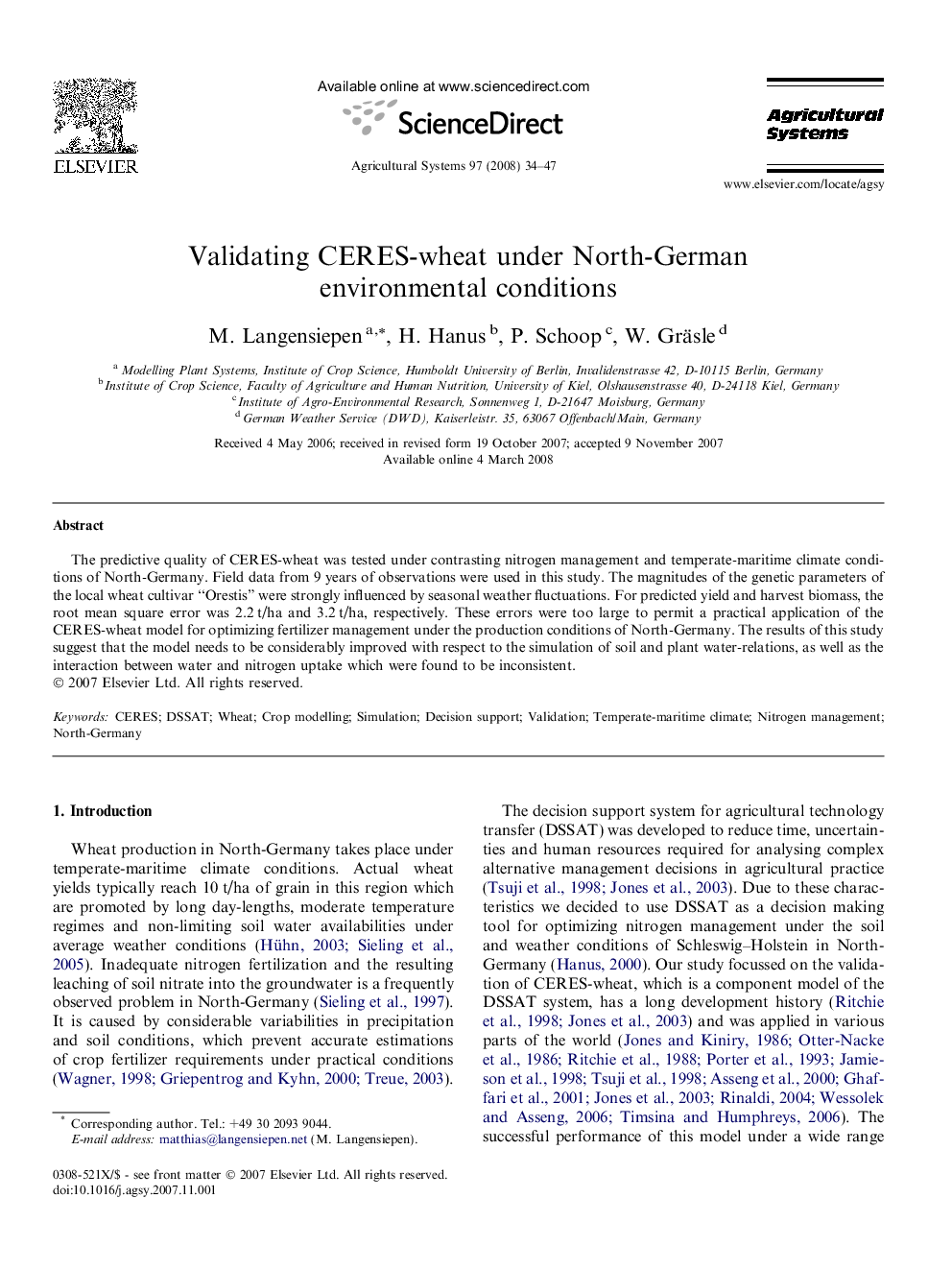| Article ID | Journal | Published Year | Pages | File Type |
|---|---|---|---|---|
| 4491840 | Agricultural Systems | 2008 | 14 Pages |
The predictive quality of CERES-wheat was tested under contrasting nitrogen management and temperate-maritime climate conditions of North-Germany. Field data from 9 years of observations were used in this study. The magnitudes of the genetic parameters of the local wheat cultivar “Orestis” were strongly influenced by seasonal weather fluctuations. For predicted yield and harvest biomass, the root mean square error was 2.2 t/ha and 3.2 t/ha, respectively. These errors were too large to permit a practical application of the CERES-wheat model for optimizing fertilizer management under the production conditions of North-Germany. The results of this study suggest that the model needs to be considerably improved with respect to the simulation of soil and plant water-relations, as well as the interaction between water and nitrogen uptake which were found to be inconsistent.
